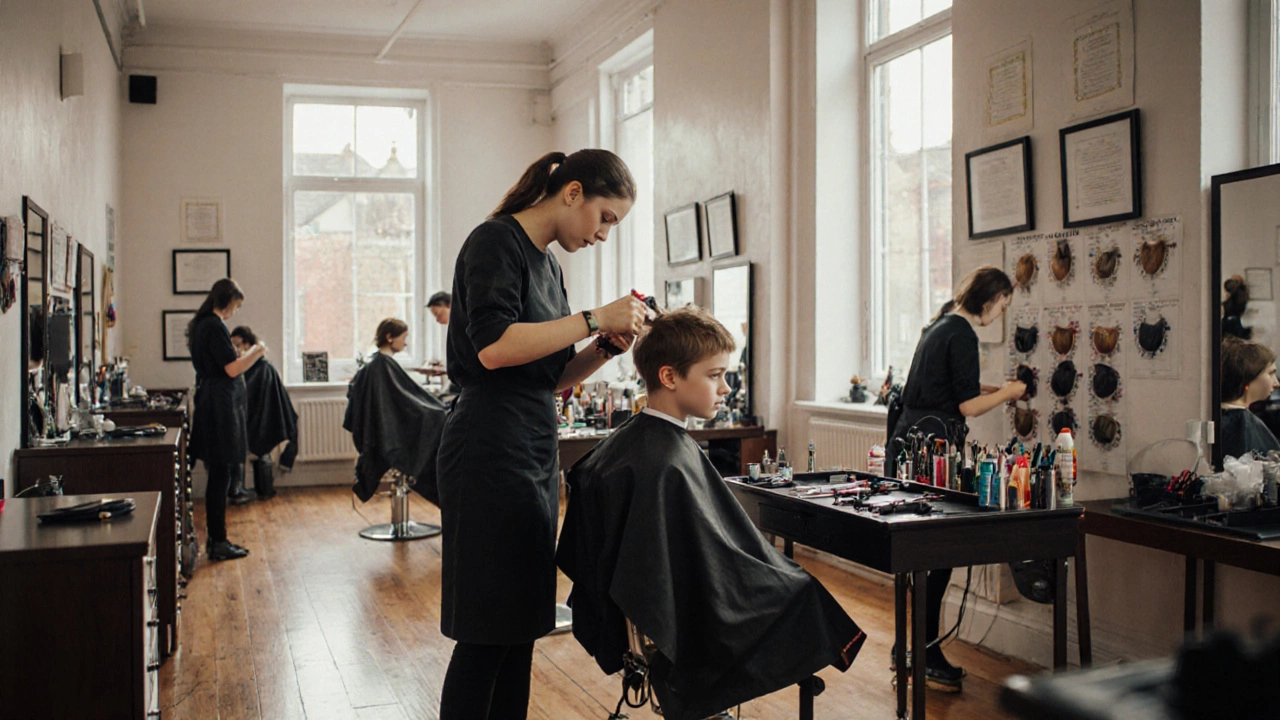Beauty Therapy Courses: What You Need to Know Before You Start
Thinking about a career that mixes creativity, people skills, and solid earnings? Beauty therapy might be the sweet spot. But before you sign up for a course, you’ll want the facts: what qualifications matter, how long the training lasts, and which path gives you the best job prospects.
Which Qualification Is Right for You?
In the UK, most employers look for an NVQ Level 2 or Level 3 in Beauty Therapy. These work‑based awards prove you can do the job on the floor, not just pass a written test. If you want a faster route, a short‑course certificate can get you in the door, but an NVQ will open doors to higher‑paying salons and spa chains.
Some students aim for a full‑time diploma or even a degree in beauty therapy. Those programs usually include deeper anatomy lessons, business modules, and a wider range of treatments – from skin care to nail art. The extra study time can be worth it if you’re targeting senior therapist roles or want to run your own business.
How Long Does It Take?
Most NVQ Level 2 courses finish in 6‑12 months, while Level 3 can stretch to 12‑18 months, depending on part‑time or full‑time study. A Bachelor’s degree in beauty and spa management typically lasts three years and often includes an industry placement, giving you real‑world experience before you graduate.
When you’re choosing a provider, ask about practical hours. Hands‑on practice is the heart of beauty therapy – you’ll need to spend at least 100 hours working with clients before you can claim competence. Look for schools that have in‑house salons or partner with local spas.
Cost is another factor. NVQs can run from £500 to £2,000, while full‑time diplomas may cost £3,000‑£5,000. Many courses qualify for government funding, apprenticeships, or employer sponsorship, so it’s worth checking your eligibility.Beyond the paperwork, think about the day‑to‑day work. As a beauty therapist you’ll do facials, massages, waxing, and sometimes advanced treatments like micro‑needling. Strong communication skills and a knack for selling retail products are just as important as technical know‑how.
If you’re still on the fence, read our articles “Is Becoming a Beauty Therapist Worth It?” and “What Degree Do You Need to Become a Beauty Therapist?” – they break down the pros, cons, salary ranges, and how the industry is evolving in 2025.
Ready to pick a course? Start by listing your career goals: Do you want to work in a high‑street salon, a luxury spa, or run your own business? Match those goals with the qualification level that employers in your target market prefer. Then compare course length, cost, and the amount of hands‑on training each provider offers.
Remember, the beauty industry rewards those who keep learning. Even after you finish your first qualification, consider short specialised courses in makeup artistry, advanced skin treatments, or business management to stay ahead.
Bottom line: a solid NVQ or degree, real‑world practice, and a willingness to keep up with trends will set you up for a rewarding career. Browse our list of recommended courses, sign up for a free consultation, and take the first step toward a job where you get to make people look and feel their best every day.







